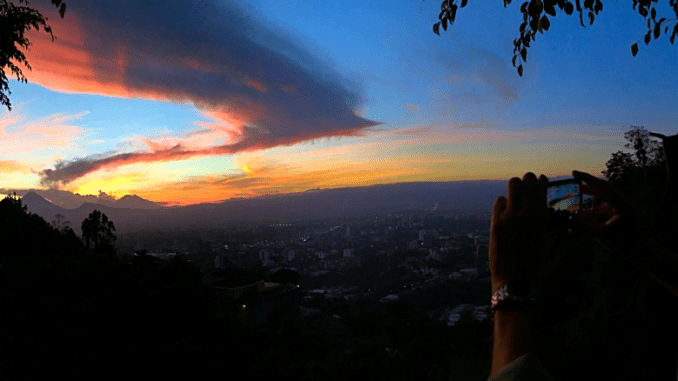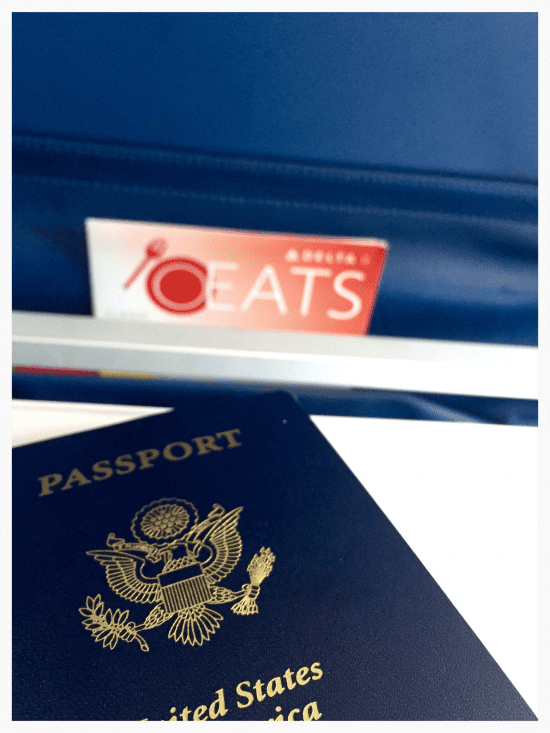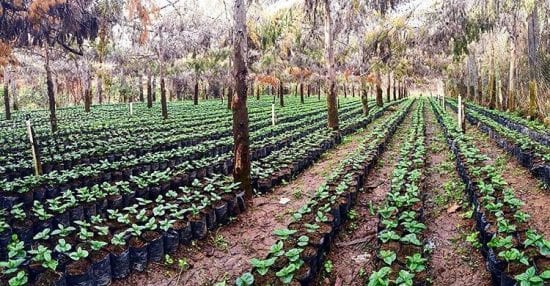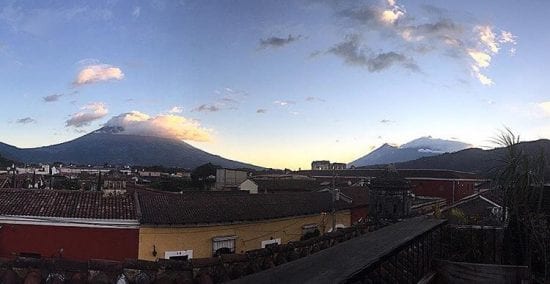
Baristas and coffee pros dream of traveling to origin. But the realities of travel often don’t match our expectations of the things we’ll see and the lives that farmers lead.
BY DEAN KALLIVROUSIS
SPECIAL TO BARISTA MAGAZINE
Our industry does not have a real solid definition of specialty coffee. SCA defines it as anything 80 points or above. My idea of specialty coffee has been about quality, freshness in green, roasted coffee for the end consumer, and—importantly—respecting the producer. In my mind, specialty coffee is about progress within the coffee industry as a whole, moving from a commercial commodity to a more dynamic market that rewards hard work throughout the entire supply chain. My dream as a competitive barista working in specialty coffee was to visit a coffee-producing country. I wanted to see and feel what it is like to be a coffee producer. Last year I had the opportunity to go to Guatemala as my first trip to a coffee origin country. What I experienced was something so complex: I saw struggle, hard work, poverty, and glimpses of beauty all within the same industry. There were magical moments, but overall it was raw and overwhelming.
The year before my trip to Guatemala I met Jorge Tepetate, another coffee professional, at Expo. He was working on making connections in the U.S. to provide direct trade opportunities for a handful of producers he represented in Guatemala. We talked and parted ways with contact information in hand. Several months later, a sample arrived on my doorstep—it was a honey-processed geisha from Guatemala, which I promptly roasted and cupped. The flavors were reminiscent of the Geisha varietal, florals in the aroma but with something new that I had not experienced in Guatemalan coffee or even Geisha. Flavors of tropical fruits began to burst forth from the cup; the coffee was creamy and lingered delightfully. After tasting this coffee I knew I wanted to visit the farm and meet the producer who was responsible for producing such an excellent cup of coffee. I contacted Jorge and we arranged for a trip in February 2016.

Our first day in Guatemala, we had to wake up at 4 a.m. to travel to the producer two hours away. We changed vehicles, boarding his truck that could handle the mountain terrain and unpaved roads that reach into the interior of Guatemala. When we arrived at the farm in the afternoon after the bumpy journey, I felt like I had finally found the true origin of coffee that I was looking for: I was at coffee origin with a coffee farmer. My mind was reeling with excitement as I began to learn about how the farm was set up, and how they amended the soil content to produce healthy, thriving coffee plants to maximize productivity. And then I learned how to harvest coffee!
That evening, after touring the farm, the coffee producer wanted us to meet with a group of several other producers in the area looking for an opportunity for market access to sell their specialty coffee. The three of us arranged for a meeting at one of ANACAFE’s cupping labs and evaluated the coffees the producers presented. It was expected that I was to lead the group in evaluation and tell these farmers how their coffees might be received in the U.S. market. To say I felt intimidated would be an understatement.

Everyone was pretty chipper when we first arrived, but as we began the cupping the room turned silent and very tense. The coffees scored well—nothing really below 83 and nothing above 86. And then they wanted to know what their coffee could fetch in the U.S. market. I told them, based on my experience, while it depended on market conditions, they could expect between $1.80 and $3.00.
What I can recall of the next two hours is still a bit blurry, but the experience left me with a feeling that persists. The farmers, upon learning of the value their coffees might represent, became frustrated and then angry. They could not comprehend why their coffee, their hard work, and their investment was worth so little to the market compared to their expectations. Specialty coffee and the great efforts it required, from the farmers’ viewpoint, had been a cash crop worth investing in. It was seen as potential for an economic boost to their livelihoods. Our industry preached that if you work hard and create excellent coffee, you’ll be rewarded for your hard work. And they are rewarded many times, just not what they thought it would be.

The frustration and anger was not directed toward me, but ultimately at the market, roasters, and consumers. I walked away from the meeting emotionally drained because I was not prepared for the reality that many farmers experience producing coffee. And the producers were drained by the reality they experienced attempting to sell specialty coffee. Many had dreamed about owning a coffee roasting company or coffee shop in the U.S. because their understanding of the economics made that seem so desirable. And while it is more complex than this, the farmers could not wrap their mind around the idea that their coffee could be worth $2 a pound and someone would walk into a coffee shop and buy a cup of coffee for $2. Nor could they could wrap their minds around the idea that a 12-ounce bag of their coffee roasted and sold in the U.S. would sell for $14 or more.
My experience in Guatemala, my first trip to coffee origin, was not what I thought it would be. I packed up that night to get ready to fly back to the States in the morning. I know it is so much more complicated than just my experience, but I still wasn’t sure if I wanted to continue to work in the coffee industry after that meeting. We all preach that specialty coffee can make a difference in the world, that it can benefit the entire supply chain. We believe we are making a difference by participating in an industry that we truly care about. It’s taken me about an entire year to process this experience. It has challenged my ideals to the core. Specialty coffee for me is about progress. We have come a long way from the first time the term specialty coffee was used in 1974. For me, this experience has led to a few questions I think we can all consider: Are we listening to producers—what they think and feel about specialty coffee? What are their hopes and expectations of participating in specialty coffee? And are we helping to make the impact that we all want to see in specialty coffee?
 ABOUT THE AUTHOR
ABOUT THE AUTHOR
Dean Kallivrousis is a sales associate for Ally Coffee. He lives in Kansas City with his wife and two little girls. When he isn’t getting his hands dirty playing with coffee, you can find him chowing down on BBQ or playing disc golf. You can find Dean on Instagram: @espresso_patronus


Very thoughtful and compelling article, thank you for sharing! It is difficult and challenging indeed as someone who cares profoundly about providing high quality specialty coffee that supports producers and then coming to face with the extreme challenges these producers face from the realities of the industry and the economy as a whole. It is not an easy job by any means but continuing to support these producers and championing their struggles is the best thing you can do to help their efforts and slowly work to improve the industry as a whole. The fact that more and more people are becoming conscious of the importance of origin and supporting producers is encouraging in itself.